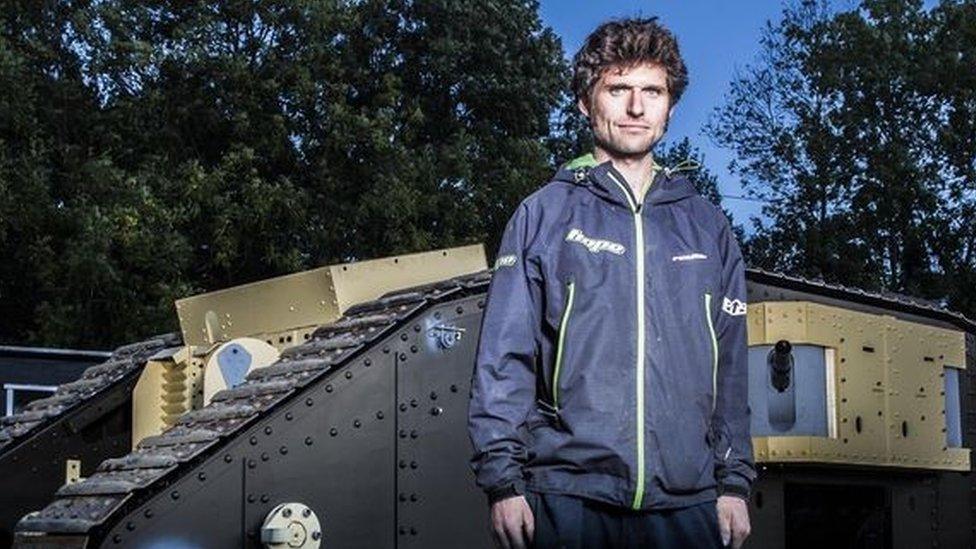Ruston WWI aircraft engine factory to be demolished
- Published
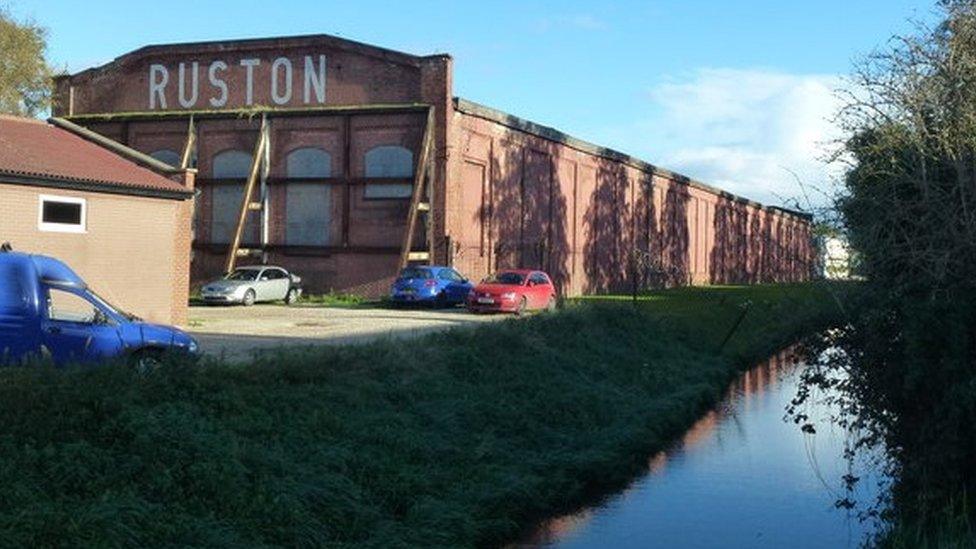
The factory was the UK's largest producer of aircraft engines during World War One
A factory used during World War One to produce aircraft engines is to be demolished - despite calls for at least part of the building to be protected.
City of Lincoln Council officers approved plans to level the former Ruston Works.
Opponents of the move wanted to see the building restored for public use and to include a museum.
However, developers said the site was unfit for occupation.
The Ruston factory, which produced industrial machinery, became the country's largest producer of aircraft engines during WWI.
It was last in use as a fertiliser manufacturer in 2015 when it was the former home of William Sinclair Horticulture.
According to the Local Democracy Reporting Service, campaigners suggested the building could be brought back into use as a swimming pool or ice rink, and also house a museum.
Thomas Baines, who commented on the application, said at the very least the facade of the building should be preserved.
"This is cherished a landmark and a local asset that should be preserved as part of the development."
However, the applicant, John Rumsey of Riverstone Dev 1, said: "All of the existing buildings on site are derelict and have been subject to considerable vandalism.
"The state of the existing buildings represent a health and safety risk and are unfit for occupation."
"The buildings also require demolition in preparation for new development and regeneration," he added.
The decision was published, external on Friday.

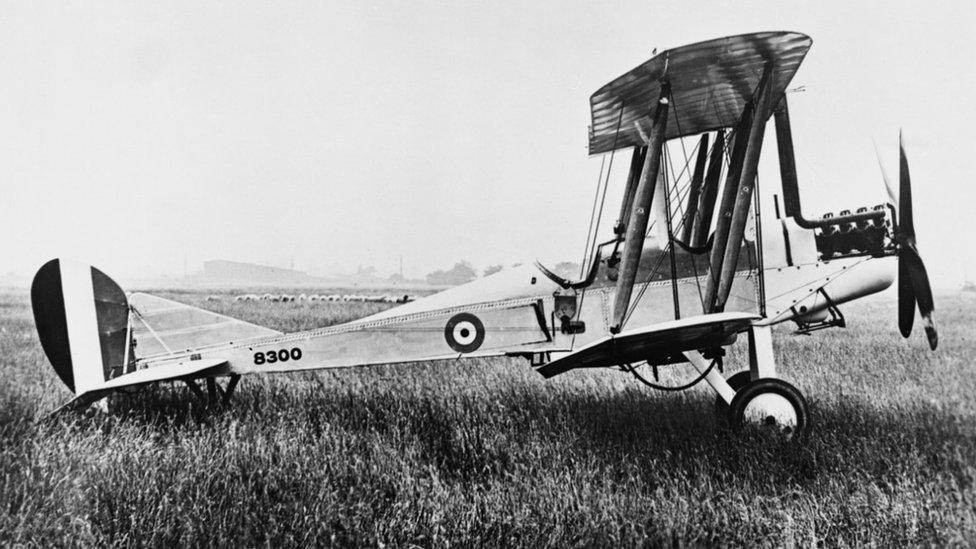
Lincoln was a major producer of aircraft during WWI, building one in 14 aircraft in Britain
The city produced more than 3,500 aircraft and 3,000 engines. One of the aircraft produced was the BE2c - a two-seat reconnaissance aircraft, fitted with bomb-rack (pictured above)
The largest producer was Ruston, Proctor & Co, which built more than 2,000 engines
Source: Visit Lincoln

- Published24 July 2014
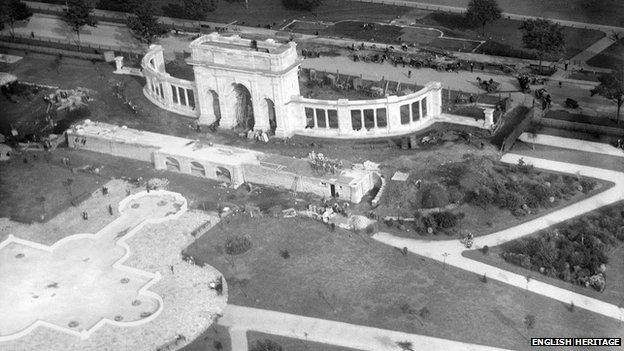
- Published13 November 2017
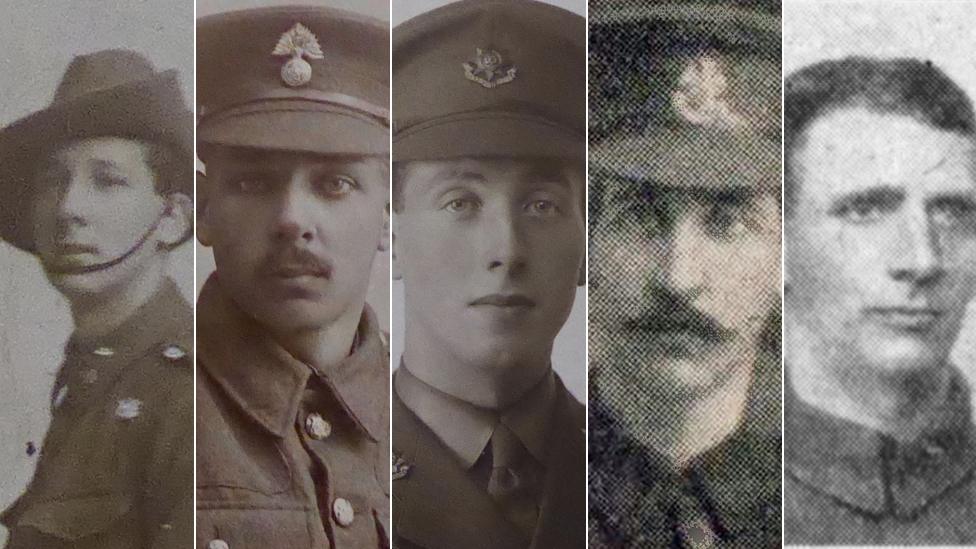
- Published20 November 2017
